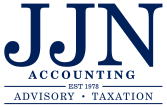Funding is crucial for anew business to launch and for establishedbusinesses to grow. But how does it work? What options are available? who and where from? What are the limitations, obligations, compliances, and legal framework to observe? How to prepare for fund raising and what are the best practices? Understanding Capital Raising for Australian Private Companies Capital raising is a crucial process for any business, providing the necessary funds to fuel growth, innovation, and sustainability. For Australian private companies, navigating the complex landscape of capital raising can be challenging. This comprehensive guide will explore the various options available, the legal framework, and best practices for successfully raising capital. Capital raising refers to the process of obtaining funds to finance business operations, typically through equity or debt financing. Private...
